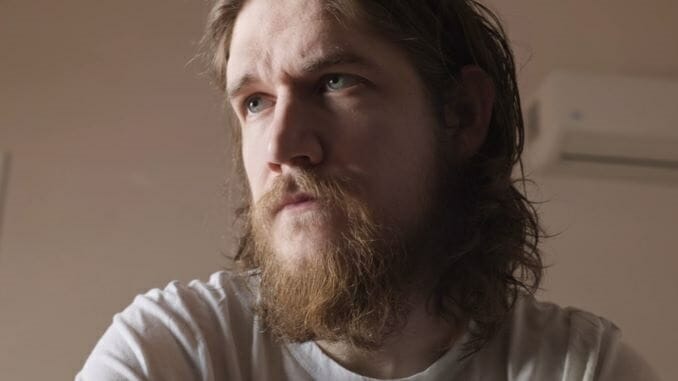Bo Burnham Satirizes the Sadness and Ugliness of Modern Life Like No Other Comedian

In Bo Burnham’s new Netflix special Inside, there’s a song called “White Woman’s Instagram” that will, I think, become the most iconic segment when the video finds its way to YouTube. Like a few of Burnham’s songs, the lyrics are mostly a list of objects—”an open window,” it begins, “a novel…a couple holding hands…an avocado…a poem, written in the sand”—that give way to the rising chorus: “Is this heaven? Or is it just a white woman’s Instagram?” As he sings, Burnham unleashes visual set pieces that have become so familiar to the genre: a bowl of cereal with blueberries neatly forming a peace sign, his artificially blue eyes peeking out from the fur-trimmed collar of a hooded coat, a sepia-toned autumnal scene where he sips from a mug that reads “Beyonce is my spirit animal.”
It’s instantly hilarious, and it combines a lot of things Burnham is very good at, from his facility with the English language to his keen eye for superficiality to the superlative directorial skills he displayed in the film Eighth Grade. By the time he sings “some random quote from Lord of the Rings / incorrectly attributed to Martin Luther King”—which is only about 45 seconds into the song—even the most offended influencer would have trouble denying the brilliance of the satire.
Then something really interesting happens: as the music slows, Burnham stands in front of a wall outlined in white lights. He stands with his hands in front of his waist, head turned downward in a melancholy pose, and sings the following:
Her favorite photo of her mom
The caption says:
“I can’t believe it
It’s been a decade since you’ve been gone
Momma, I miss you
I miss sitting with you in the front yard
Still figuring out how to keep living without you
It’s got a little better, but it’s still hard
Momma, I got a job I love and my own apartment
Momma, I got a boyfriend, and I’m crazy about him
Your little girl didn’t do too bad
Momma, I love you. Give a hug and kiss to Dad
The minute it’s over, the music picks back up, and so do the lighter lyrics: “A goat-cheese salad…a backlit hammock,” and etc.
An audio-only version of the song recently went up on YouTube (Netflix has since copyright-nixed it), and had hundreds of thousands of views in its short stay. In the comments, the overwhelming sentiment about this verse was that in the midst of the satire, Burnham wanted to show the humanity in the average Instagrammer, and broke off from his teasing to capture the heartfelt nature of some content. As in, “even phonies feel genuine sadness.” This opinion was affirmed by hundreds of likes across several comments.
That is not how I saw that moment. Perhaps it says more about me, and how cynicism has overtaken my worldview, but my jaw dropped at the interlude. Based on the showy lighting on the wall, Burnham’s own melodramatic emoting, and the spirit of the song, I saw it not as a departure into kindness, but a very dark kind of satire that upped the stakes of the song. In my mind, he was telling us that even the more emotional, more apparently sympathetic aspects of these platforms were ultimately superficial and calculating, and that we’ve become so deranged by the attention economy that even the memory of a lost parent isn’t sacred; that, too, we’ll use for clout. It struck me as incredibly bold—”edgy” in the way the word might have been intended in its original sense, as a sincere compliment directed at an artist who sees a line he’s not supposed to cross, crosses it anyway, and creates a distinctly uncomfortable commentary in the process. I thought the discourse around this moment would center on whether Burnham was being too cruel; I didn’t think for a moment that they’d assume he was being nice..
I keep returning to this moment because the YouTube comments made me doubt whether I was right. I hope I am, because the entire excellent special hinges on this idea of attention-seeking, of which Burnham is himself guilty, and where our creative impulses become corrupted by a social media-tinged desire for the dopamine rush that floods the brain with each “like.” This is nominally a special about the pandemic—the “inside” of the title refers to where we’ve been for the past year, and the cluttered, claustrophobic setting for the entire 87 minutes—but it’s really about narcissism, and ego, and the apocalypse. He explores the theme over and over, usually with himself as an object—”all eyes on me!” he sings, and then yells, in a later song.
-

-

-

-

-

-

-

-

-

-

-

-

-

-

-

-

-

-

-

-

-

-

-

-

-

-

-

-

-

-

-

-

-

-

-

-

-

-

-

-








































